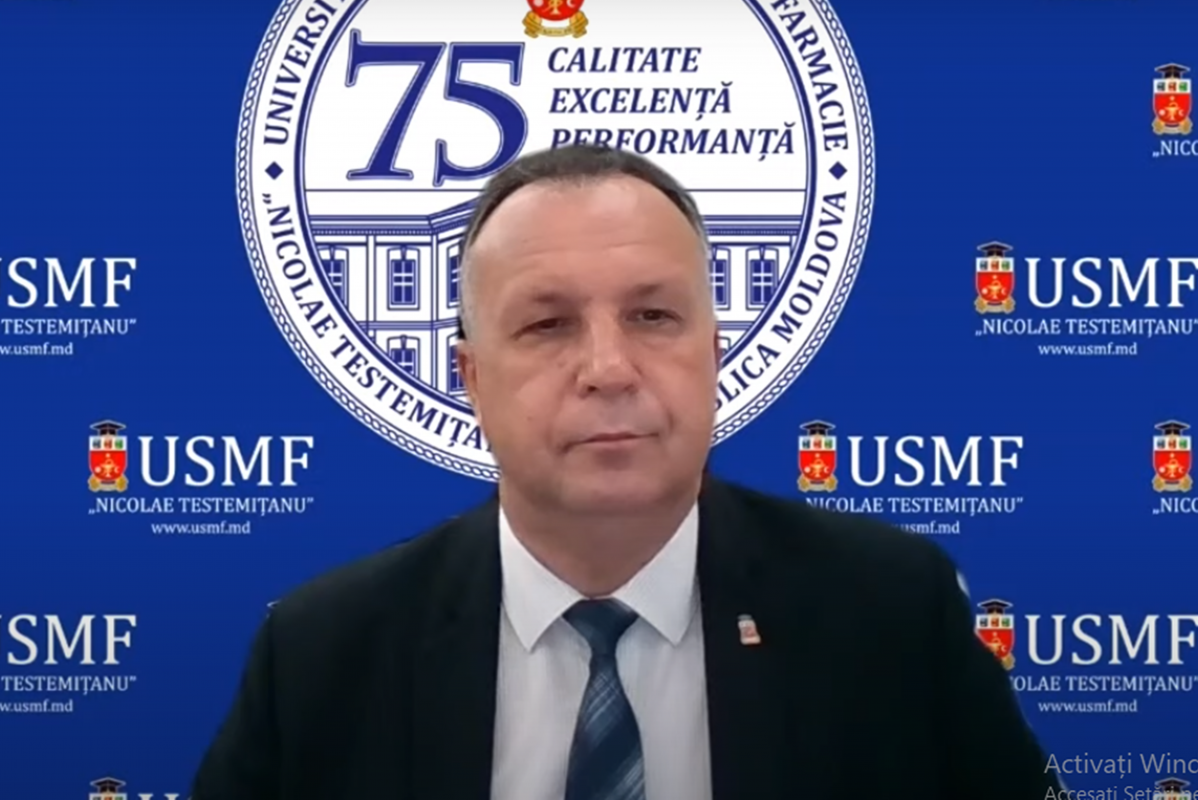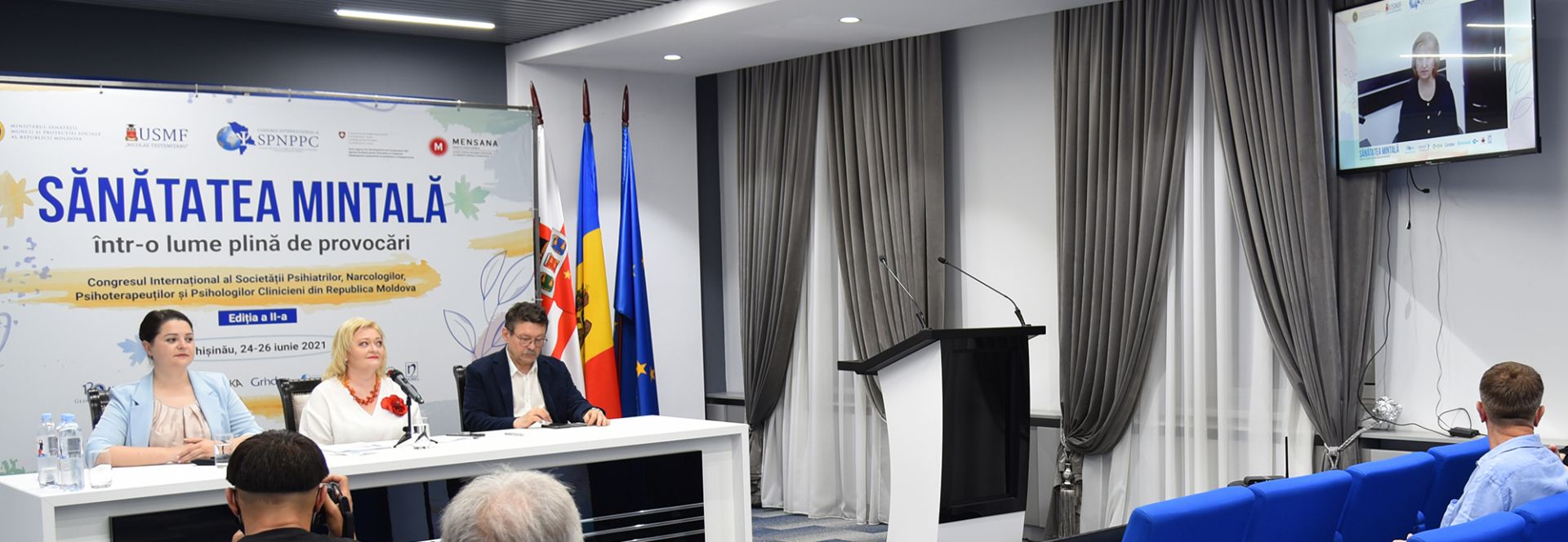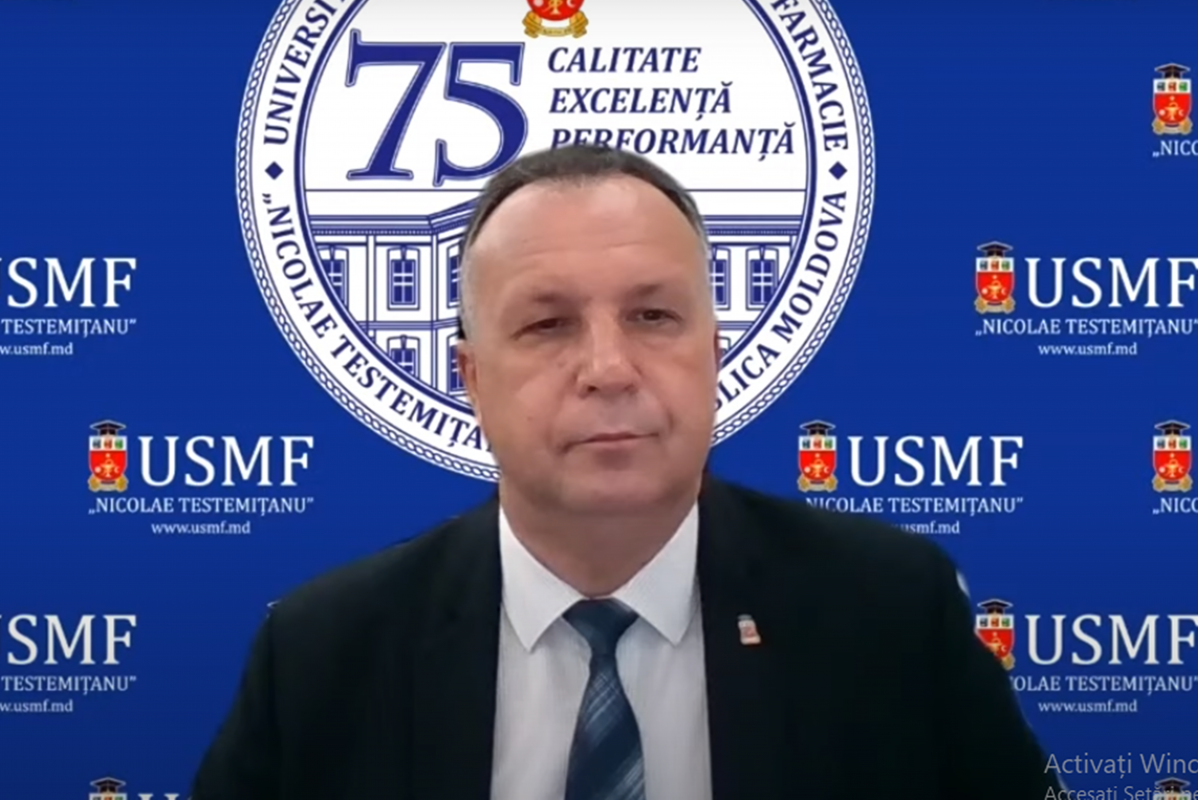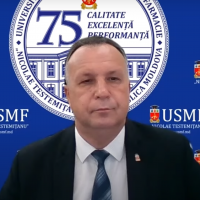Creation of a National Mental Health Center – one of the imminent priorities in the development of health system in the Republic of Moldova
- 598 views

The field of mental health is extremely important and sensitive, but at the same time, it does not receive sufficient attention from authorities, and people with mental health problems are subjected to social stigma and discrimination. In the future, mental health will become an even more affected area. Therefore, mental health professionals need to be trained to meet the population’s demand for assistance. The statement belongs to the Rector of Nicolae Testemitanu State University of Medicine and Pharmacy, Professor Emil Ceban, and was launched at the opening event of the Second International Congress of the Society of Psychiatrists, Narcologists, Psychotherapists and Clinical Psychologists of the Republic of Moldova. The forum entitled Mental Health in a Challenging World was held on June 24-26, 2021.
According to the Rector, in recent years, Nicolae Testemitanu University has contributed to the proper training of mental health specialists by involving members of the departments of Psychiatry, Narcology and Medical Psychology and Family Medicine in the implementation of MENSANA Moldovan-Swiss project. Curricula for integrated higher education and continuing professional education of medical staff working in the field of mental health have been updated to fit the community model of care. Together with international experts, the scientific-didactic staff of Psychiatry, Narcology and Medical Psychology Department has developed national clinical protocols and standardized clinical protocols for the most common mental illnesses, such as: depression, anxiety, bipolar affective disorder, schizophrenia, autism spectrum disorders, attention deficit/hyperactivity disorders, dementia, etc. The department has also developed a psychiatry textbook based on the latest information and scientific evidence.
”Mental health is a vast field that requires a complex approach in terms of medical, psychological and social education. Therefore, the congress brings together representatives of different professions from the mental health area – psychiatrists and psychotherapists, scientists, teachers, researchers and practitioners. In this context, promoting mental health, as proposed in this forum, is a very important and timely objective”, mentioned Rector Ceban.
Tatiana Zatic, Secretary of State of the Ministry of Health, Labor and Social Protection, has informed the audience that in the field of mental health, at the country level, a national program is being implemented, developed based on European regulations. ”The actions taken contribute to ensuring respect for fundamental human rights and providing equitable opportunities to achieve high living standards for people with mental health problems, access to and inclusion of safe and quality mental health services for adults and children throughout their lives and their inclusion in the community”, the official stated.
According to the health representative, the forum is taking place “at a time when our lives have changed considerably, as a result of the COVID-19 pandemic. This is a topical issue and the exchange of experience between experts from different countries will significantly contribute to the continuous development of professionals and increased quality of medical services in the field of mental health”.
Jana Chihai, President of the Congress, Associate Professor at the Department of Psychiatry, Narcology and Medical Psychology, has mentioned that mental illness has a negative impact on the lives of those affected, as regards social and economic aspects, generating serious costs for the medical, education and legal systems. According to the World Health Organization (WHO), 450 million people worldwide are affected by mental health problems, behavioral and neurological disorders. About 151 million people suffer from depression, the number of women affected being twice as high as that of men. 70 million people suffer from alcohol addiction and 50 million – from epilepsy. It is estimated that one in four adults has mental health problems. It has been shown that 19% of health problems are mental health problems. These figures are worrying and call for urgent action. The WHO also estimates that in 2030, depressive disorders will be the leading cause of disability, confirming the need to build an adequate system of services that could meet the needs of the population.
Promoting health and well-being is one of the global goals that make up the Sustainable Development Agenda until 2030, the main goal being coverage with medical services at all stages of life, including in the field of mental health.
In the Republic of Moldova there are 80 thousand people with mental and behavioral disorders, 40% of them are included in mental health records, having an established disability degree. They are the most vulnerable layer of our society.
Starting with 2014, the reform of mental health services has been taking place in our country and, including thanks to the MENSANA project, a new model of care for patients with mental illnesses has been developed. This model has been initially implemented in 4 districts, later being extended to 40 community mental health centers, including in each district and sector of the capital.
”The pandemic period also affected the mental health field and required early mobilization. Thus, we developed a series of tools that helped to take steps for prevention and intervention in the field of mental health. The national clinical protocol for the treatment of COVID-19 includes a section dedicated to mental health, to be updated with each edition. Algorithms of interventions in the field of mental health for the population as well as for the first line doctors and professionals, and for team leaders providing psychological first aid, etc., have been developed and introduced. The pandemic has also led to the transition to online education – a great challenge for students and parents. In this regard, 10 video tutorials have been developed – School for informed parents – as support in overcoming crises in this difficult period”, said the mental health expert.
Finally, Jana Chihai mentioned the imminent priorities for the development of the mental health system in the country: founding the National Mental Health Center, providing community mental health teams with specialists, identifying the necessary spaces, developing psychosocial rehabilitation services and creation of specialized departments in district hospitals for acute psychiatric cases.
Victoria Condrat, the manager of MENSANA mental health system reform project, stressed that the mental health field has recently started to become a priority in the Republic of Moldova, although until the pandemic the need to develop these services was felt as well. ”The Swiss government, through the Swiss Cooperation Office in Moldova, supports the reform of mental health services in our country, and we must change not only the services, but also the attitude, way of working and quality management”, the expert concluded.
The International Congress on Mental Health included a series of conferences, symposia and plenary sessions, which addressed topics related to: psychopharmacology, adult and child psychiatry, the phenomenon of stigma in mental health, community services, addictions, psychotherapy as well as some aspects of good practices from other countries. The special guests of the forum were well-known personalities from international companies such as the European Psychiatric Association (EPA) and the World Psychiatric Association (WPA), but also scientists from Romania, the Russian Federation, Belarus, France, Switzerland, Italy etc.
Preluarea informației de pe site-ul USMF „Nicolae Testemițanu” poate fi efectuată doar cu indicarea obligatorie a sursei și a linkului direct accesat pe www.usmf.md.




Comentarii